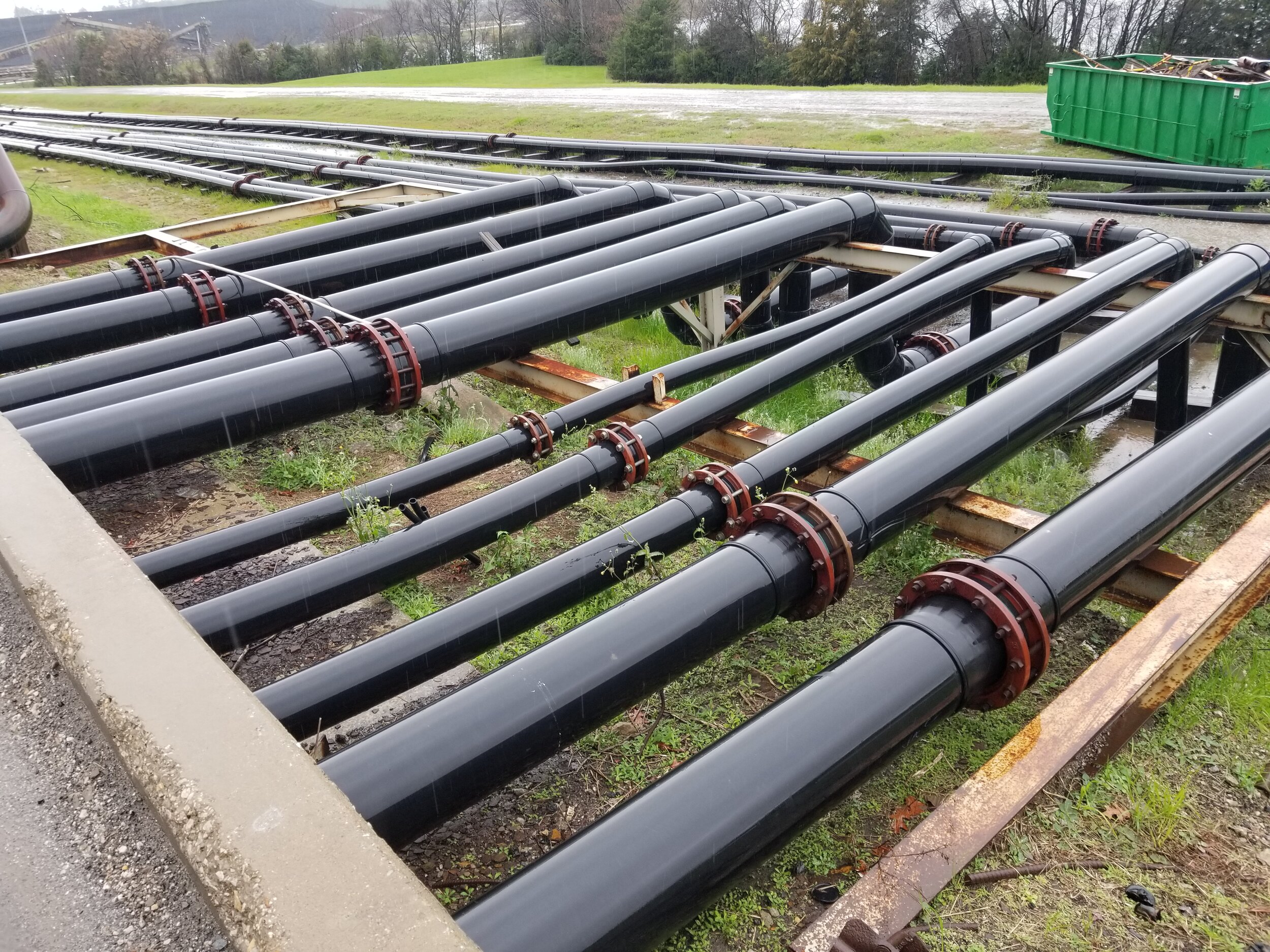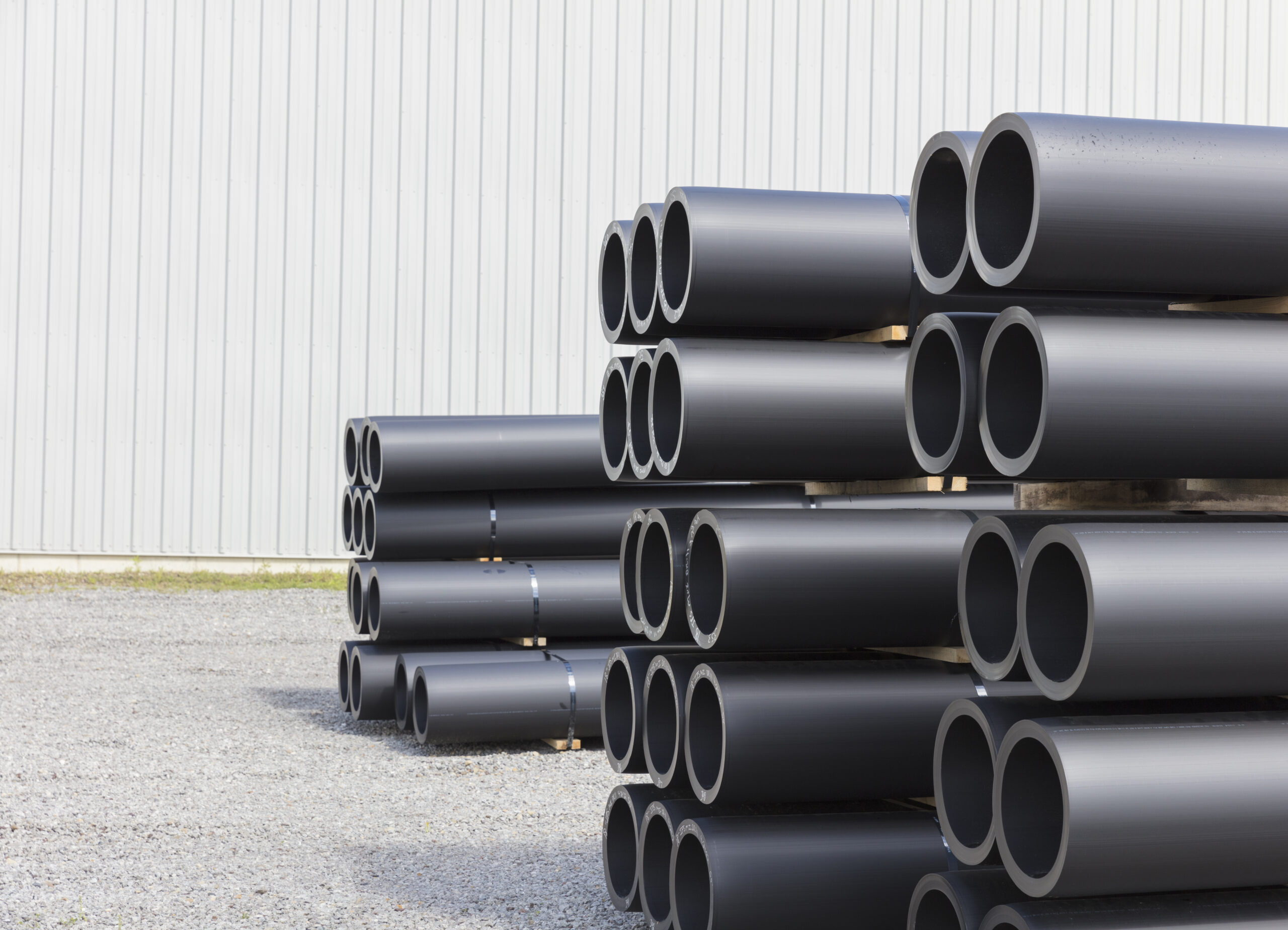American Plastics HDPE Pipe for Oilfield: Preferred in the Oilfield
A Comprehensive Guide to the Different Uses HDPE Pipe in Building and Sector
HDPE pipes have actually become a crucial component in modern building and industrial applications. Their special properties, such as resistance to corrosion and light-weight style, make them suitable for a variety of usages. From water supply systems to farming watering, HDPE pipelines supply options that improve effectiveness and sustainability. Understanding their diverse applications is essential for specialists looking to maximize infrastructure. What details advantages do these pipes offer each industry?
Water System and Distribution Equipments
Water supply and distribution systems are vital parts of city infrastructure, often depending on high-density polyethylene (HDPE) pipes for their sturdiness and efficiency. These systems transportation drinkable water from therapy centers to consumers, making sure accessibility and safety. HDPE pipes are preferred for their resistance to corrosion, chemicals, and extreme temperature levels, which improves their durability and lowers upkeep expenses. In addition, their lightweight nature permits less complicated setup and transport, making them ideal for various metropolitan and country applications.
The flexibility of HDPE pipelines enables them to be mounted in limited rooms and around challenges, minimizing the need for extensive excavation (Midland TX HDPE Pipe Fittings in Stock). Their smooth interior surface area decreases rubbing losses, enhancing water circulation prices. As cities remain to grow, the demand for reputable supply of water systems boosts, positioning HDPE pipes as a sustainable service for contemporary infrastructure projects. Their tested track document makes them a favored choice among engineers and urban organizers alike
Wastewater Administration and Treatment
Effective wastewater administration and treatment are necessary for keeping public health and environmental quality. HDPE pipelines play a vital role in this procedure because of their toughness, resistance to deterioration, and capability to hold up against rough chemicals. These pipes are typically used in various applications, consisting of sewage systems, stormwater drainage, and wastewater therapy centers. Their light-weight nature facilitates simpler setup and transport, decreasing labor prices and time.
Furthermore, HDPE pipelines have a smooth indoor surface that lessens friction loss, advertising reliable flow prices. They are also much less prone to leaks and failings compared to traditional materials, making certain that pollutants are consisted of successfully. Furthermore, their adaptability enables adaptability in different dirt conditions, making them appropriate for diverse ecological settings. As industries significantly focus on sustainable techniques, using HDPE pipelines in wastewater monitoring systems straightens with goals for decreasing ecological impact and enhancing source recovery.
Agricultural Watering Solutions
In farming settings, reliable irrigation options are crucial for enhancing plant returns and managing water sources. HDPE (High-Density Polyethylene) pipelines play a vital function in contemporary watering systems as a result of their longevity, flexibility, and resistance to rust. Their ability to withstand high pressures makes them perfect for both surface and subsurface irrigation applications, ensuring uniform water circulation across fields.
Farmers can utilize HDPE pipelines in drip irrigation systems, which deliver water straight to plant roots, lessening wastefulness and promoting healthy and balanced development. Additionally, these pipelines are lightweight and easy to mount, lowering labor prices and installation time. Their long lifespan and low upkeep needs better improve their appeal in agricultural methods.
HDPE pipes are eco friendly, as they can be recycled and do not seep damaging chemicals right into the soil. This makes them a sustainable option for farmers intending to embrace eco-friendly agricultural methods while making the most of performance.
Industrial Applications and Processes
Convenience is a trademark of HDPE pipes, making them essential in different industrial applications and procedures. These pipelines are widely utilized in chemical processing markets as a result of their superb resistance to a large range of harsh materials. HDPE's lightweight nature, combined with high tensile stamina, allows for simple installment and long-term performance popular environments.
In the oil and gas field, HDPE pipes play a necessary duty in moving hydrocarbons and gases, many thanks to their durability and flexibility - Pipe Manufacturing Midland TX. Additionally, they are employed in mining procedures for the transport of slurry and various other materials, where traditional piping systems might fall short
HDPE pipelines are increasingly made use of in making facilities for water supply lines and wastewater management. Their ability to endure severe temperature levels and stress makes them suitable for a selection of commercial procedures. In general, HDPE pipelines contribute substantially to efficiency and security throughout varied industrial applications.
Stormwater Monitoring and Water Drainage Solutions
Stormwater administration and water drainage systems are critical elements in urban framework, made to handle excess rains and minimize flooding dangers. High-density polyethylene (HDPE) pipes are significantly used in these systems because of their durability, versatility, and resistance to deterioration. These pipes efficiently transfer stormwater away from populated locations, minimizing surface area runoff and protecting against waterlogging.
HDPE's light-weight nature helps with easier installment, lowering labor prices and building time. In addition, its resistance to chemicals and ecological stress factors assurances longevity and integrity in different climates. In addition to standard water drainage applications, HDPE pipes are additionally employed in innovative remedies such as eco-friendly facilities, that includes rain gardens and absorptive pavements.

Frequently Asked Inquiries
Exactly How Does HDPE Pipe Compare to PVC Pipeline in Cost?
Generally, HDPE pipe has a tendency to be a lot more costly than PVC pipe because of its boosted durability and flexibility. Long-term price considerations, such as maintenance and life-span, may prefer HDPE in details applications.
What Is the Life-span of HDPE Piping Under Varying Conditions?
HDPE pipelines generally have a lifespan of 50 to 100 years, depending upon ecological conditions, setup practices, and use. Aspects such as temperature level, dirt type, and exposure to chemicals can substantially affect their sturdiness.
Can HDPE Piping Be Recycled After Use?
Yes, HDPE pipelines can be recycled after use. The recycling process entails melting down the product, enabling it to be repurposed right into new items, thus advertising sustainability and lowering environmental effect connected with plastic waste.
Exist Any Kind Of Certain Installment Difficulties With HDPE Pipelines?
Setup obstacles with HDPE pipelines include correct jointing techniques, ensuring appropriate trench problems, and handling thermal development. Additionally, knowledgeable labor is needed to manage customized tools, which can make complex the installment process in different settings.

What Certifications Should I Seek When Buying HDPE Pipes?
When acquiring HDPE pipelines, one ought to look for accreditations such as ASTM, AASHTO, and ISO, which validate top quality and conformity with industry requirements, ensuring durability and efficiency in various applications. - Pipe Supplier American get more info Plastics Midland